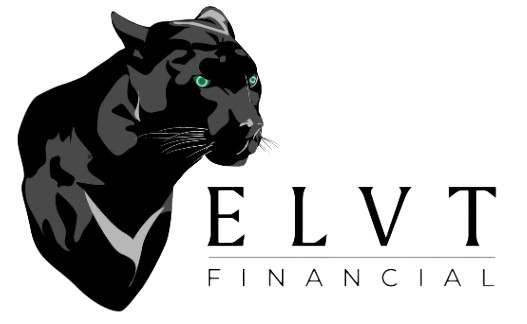Real estate is filled with industry-specific terminology that can confuse newcomers and even seasoned investors. One such term is “conversion.” At first glance, conversion in real estate may sound like a technical or niche concept, but in practice, it has broad applications across residential, commercial, and investment sectors. So, what is conversion in real estate?
Conversion refers to the process of changing the use, structure, or ownership model of a property. This transformation can significantly affect the property’s value, functionality, and marketability. Conversions are driven by changing market demands, zoning laws, investment strategies, or the desire to maximize a property’s profitability.
This article will explore the different types of real estate conversions, their benefits, challenges, and how they play a vital role in urban development and wealth-building strategies. Whether you’re an investor, homeowner, or financial consultant, understanding this concept is essential for identifying opportunities and making informed decisions.

Types of Real Estate Conversions
There are several forms of property conversions, each serving a different purpose and involving different financial, legal, and regulatory considerations.
Residential to Commercial Conversion
One of the most common types of conversion is changing a property’s use from residential to commercial. This is often seen when single-family homes or multi-family buildings are turned into office spaces, medical clinics, or retail stores.
This type of conversion usually requires approval from local zoning boards, building code compliance updates, and sometimes extensive renovations. However, when done successfully, it can significantly increase the property’s income potential.
Commercial to Residential Conversion
In recent years, especially in urban centers, many office buildings and industrial properties have been converted into apartments or condominiums. This trend has gained traction due to shifting work habits (like remote work) and the rising demand for housing.
Commercial-to-residential conversions often involve reconfiguring floor plans, installing residential utilities, and ensuring compliance with local housing codes. These conversions can contribute to revitalizing underutilized buildings and neighborhoods.
Condo Conversion
A condo conversion involves transforming a multi-unit rental property, such as an apartment complex, into individually owned condominium units. The process allows property owners to sell units individually, often at a higher per-unit price than they could generate through monthly rent.
Condo conversions require legal restructuring, new property deeds, formation of a homeowners association (HOA), and often renovations or upgrades to meet residential ownership standards. This approach is popular in cities where housing demand exceeds rental unit supply.
Hotel to Apartment or Micro-Unit Conversion
Especially during economic downturns or travel slumps, hotel owners may convert their buildings into residential apartments or micro-units. These conversions meet the growing demand for affordable urban housing and can repurpose underperforming assets.

Why Conversions Are Strategically Valuable
Conversions in real estate can offer significant returns on investment and new income streams. For both individual investors and institutional developers, conversions allow for:
- Value creation: Transforming a property’s use can dramatically increase its market value.
- Increased cash flow: New property types may offer stronger rental yields or sales potential.
- Adaptability: Conversions allow property owners to respond to demographic, economic, and cultural shifts.
At ELVT Financial, we regularly consult clients on maximizing property value through strategic planning. Real estate conversion is a core part of our investment advisory services for clients interested in building wealth through real estate.

Challenges of Real Estate Conversion
While conversions can be profitable, they are not without risks or obstacles. Common challenges include:
- Zoning and Permitting: A change in property use often requires municipal approval. This can involve public hearings and extensive documentation.
- Construction and Renovation Costs: Conversions may require significant capital to retrofit infrastructure, upgrade systems, or comply with current codes.
- Financing: Traditional mortgages may not apply to conversion projects. Investors often need bridge loans, construction loans, or creative financing strategies.
- Market Risk: If the conversion doesn’t align with demand in the area, it may not yield the anticipated returns.
Working with experienced financial planners and real estate professionals can help mitigate these risks. At ELVT Financial, we guide clients through these challenges with customized planning and financial modeling tools.
Conversion as a Wealth-Building Strategy
Real estate conversion is not just a construction strategy—it’s a financial move. Investors use it to reposition assets, unlock trapped equity, and diversify income streams. It often plays a role in 1031 exchanges, portfolio diversification, and retirement planning.
A strategic conversion can also turn a liability into a profit center. For example, converting a vacant commercial building into high-demand rental housing in a growing city can provide sustainable cash flow and long-term appreciation.
When integrated into a broader financial plan, real estate conversions support passive income generation and long-term financial independence.

Examples of Successful Real Estate Conversions
- Office-to-residential conversions in cities like New York and San Francisco are helping solve the housing crisis while reviving underused commercial districts.
- Warehouse-to-loft conversions have become staples of urban revitalization, especially in cities with industrial pasts like Detroit and Philadelphia.
- Motels converted to affordable housing are becoming a viable option in states like California, supported by public-private partnerships.
These examples illustrate how conversions not only build wealth for investors but also serve the greater community by addressing housing shortages and economic revitalization.

Planning for a Real Estate Conversion
If you’re considering a real estate conversion, here are key steps to guide your process:
- Conduct a feasibility study: Analyze market demand, financial projections, and zoning constraints.
- Engage professionals early: Work with architects, real estate attorneys, and financial consultants to ensure compliance and minimize delays.
- Secure proper financing: Explore financing options and determine the best structure based on your short- and long-term goals.
- Plan for contingencies: Budget for unexpected costs and delays to avoid cash flow issues.
These steps align with ELVT Financial’s approach to real estate wealth planning, ensuring every investment decision is backed by thorough analysis and personalized strategy.

Conclusion – What is Conversion in Real Estate?
So, what is conversion in real estate? It is the process of transforming a property from one use or structure to another to better align with market demands, regulatory standards, or investment goals. From residential to commercial conversions, and from hotel-to-housing projects to condo restructuring, real estate conversion is a powerful tool for both developers and individual investors.
With the right guidance, proper financing, and a strategic vision, conversions can unlock significant value and pave the way to long-term wealth. Whether you’re looking to reposition a property or diversify your investment portfolio, ELVT Financial is here to help you navigate every step of the process.
Learn more about our real estate financial services and how we support clients in maximizing their investment potential.



